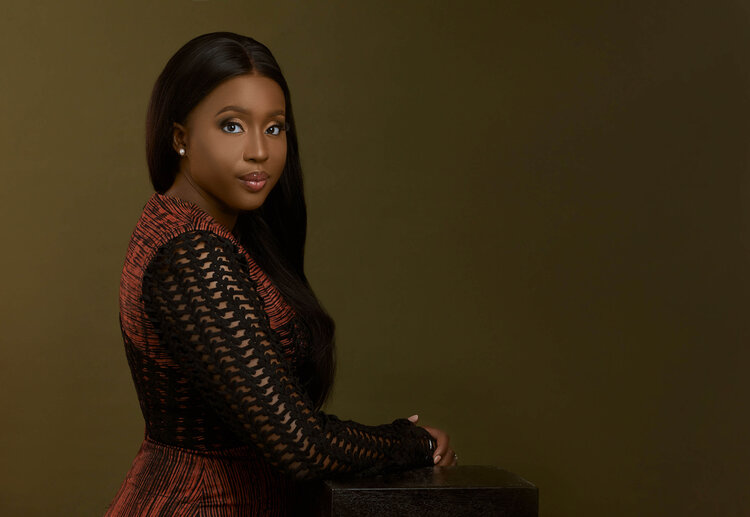- May 1, 2021
- Posted by: Aruwa
- Category: Interviews

Investing in women empowerment
Adesuwa, please introduce us to your work and its intersection with the impact space.
I am the Founder and Managing Partner of Aruwa Capital Management, a growth equity and gender lens fund investing in Nigeria and Ghana. We invest in early stage growth companies that provide essential goods and services to women, or are founded or led by women, or have women active in the workforce or value chain. We intentionally are looking to address the access to the capital gap for women in Africa as consumers and entrepreneurs as well as to reduce unemployment in our markets by providing growth capital to underfunded and overlooked companies.
Access, inclusion, and job creation
What is your own definition of “impact”, Adesuwa?
Generating strong financial returns whilst delivering positive and long-term social impact alongside tangible and measurable women empowerment outcomes. Enabling job creation for underrepresented groups as well as access to capital for overlooked underfunded women in Africa. We are deliberately integrating gender analysis into our investment analysis and decision-making.
Access to capital
What do you believe is one of the most important issues that needs to be solved over the next decade?

Access to capital for women and people of colour in my view is one of the most important dislocations in the private equity and venture capital industry that needs to be addressed in the next decade. Using the United States as an example, women and people of colour currently manage only 1.3% of the $69 trillion in assets under management although diverse managers have been proven to outperform industry benchmarks. Women and people of colour will continue to be underfunded and underrepresented in the economy if more women and people of colour are not managing and allocating capital to their communities and networks. There is a huge gap between intention to do impact investing, and the actual action. So I am hoping that this gap closes in the coming decade and that we have institutions putting money where their mouth is in terms of addressing racial inequities as well as unconscious biases women face.
Mainstream adoption of impact investing, gender analysis and ESG
Within your sector, what do you think are some of the biggest challenges in the impact space?
Overcoming the misconception that to be an impact fund you have to sacrifice returns for positive social impact remains to be one of the biggest challenges. Mainstreaming impact investing and integrating gender analysis and ESG as part of the investment process and not only reserving this for impact funds will be where we will need to get to as an industry as a whole globally. We need to continue to showcase the success stories of impact investing where intentionality around impact actually enhances returns, this will be key in helping impact investing to become more mainstream.
Financial returns, social impact and women empowerment
Adesuwa, could you share with us the long-term vision you have for your work, and how you measure & quantify your impact.

The long term vision for Aruwa Capital is to continue to showcase the untapped potential that exists when one invests in women as capital allocators, entrepreneurs and consumers. Through our fund, we intend to showcase that there’s a seamless intersection between strong financial returns, social impact and women empowerment through our gender lens investing strategy. We not only see our strategy as the moral thing to do given the role women play in society and the multiplier it can have in terms of poverty alleviation for families, but also because investing in women and for women has been proven to deliver outsized and superior returns. The empirical data shows how gender balance within organizations improves profitability, reduces risks and brings diversity of thought and decision making. We are very intentional about measuring social impact from our investments in terms of jobs created. We think private equity and venture capital investment can be a huge driver in helping to improve employment across Africa. In addition, in line with our gender lens mandate, we also measure the impact our investment has in terms of increasing the number of women in senior management, in the workforce, in supply chains, and on the board. Before we make an investment, we incorporate our standard ESG and gender questions into our due diligence questionnaire to understand what is the basis that we’re starting from across these aspects and have action plans to improve these metrics through our investment period.
Commercial returns impact society positively
Within your work, what are some of the misconceptions you’ve noticed regarding what “impact” is all about?
As a gender lens and impact fund, I encounter misconceptions that gender lens investing is “soft and pink”, only entails small investments and only concerns investing in women-owned or led businesses in order to generate any impact, and that you have to sacrifice commercial returns in order to do so. We are proving with our existing portfolio that this is not the case. We invested into a local manufacturing company that provides hygiene goods for women and girls and has women active in its value chain as distributors but is run by a male CEO. We have seen sales significantly increase since our investment illustrating that impact goes beyond just the identity of the founder and that you don’t have to sacrifice commercial returns to positively impact society. Through this investment we have improved employment, livelihoods, access to basic hygiene goods and healthcare, and alleviated poverty.
